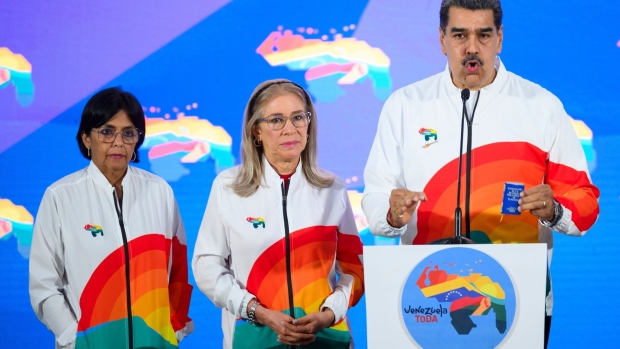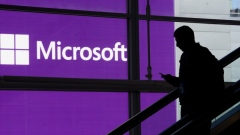Dec 4, 2023
Maduro Fails to Rally Venezuelan Nationalism in Vote Over Border
, Bloomberg News

(Bloomberg) -- Nicolás Maduro’s attempt to rally patriotic Venezuelans in a referendum over a border dispute fell short of his goals, signaling a rocky start to his presidential campaign.
Polling centers were largely deserted on Sunday as most voters ignored his calls to mobilize. The government’s report that 10.4 million voters took part met widespread skepticism, but even that fell short of Maduro’s target of 12 million.
The referendum posed five questions on whether an oil-rich piece of territory about the size of Florida should be governed from Caracas. Virtually all Venezuelans believe that this region, known as the Essequibo, belongs to them rather than to neighboring Guyana, so the result was never in doubt— about 95% of voters backed the government’s position, according to the electoral authority.
Read more: Venezuela Stirs Nationalism in Dispute With Guyana Over Oil
Voter turnout, however, “contrasts dramatically with expectations, due to what was seen in voting centers yesterday and what participation for these events have been in the past,” said Luis Vicente León, director of Caracas consultant Datanalisis. “For the government, it’s obvious that the referendum results failed to generate the success story it was looking for.”
The vote represented a significant test of the ruling party’s capacity to mobilize its supporters ahead of the 2024 election. Maduro is under pressure from the US to hold a clean election in return for an easing of economic sanctions.
The US wants the government to lift the ban on opposition candidates including Maduro’s main rival, primary winner María Corina Machado, from running for public office, among other concessions.
Machado said Venezuelans showed their discontent by not participating. She has said Venezuela should defend its position before the International Court of Justice.
Read more: Venezuela’s Primary Sweep Puts Maduro and Biden in the Hot Seat
“One of the reasons to hold the referendum would have been to test the public mood,” wrote Nicholas Watson, a political risk analyst at consultancy Teneo Holdings. “If Maduro remains nervous about how to manage the electoral challenge, he may opt to keep the border dispute simmering in an attempt to rally nationalist sentiment.”
The dispute intensified in recent years following massive oil discoveries off the coast of Guyana by majors such as Exxon Mobil Corp. The small, English-speaking nation is now one of the fastest-growing crude producers in the world.
Mistrust in the reliability of the referendum results published could undermine confidence in the electoral authority ahead of next year’s vote, according to Jesús Castellanos, a former Venezuela electoral authority official now based in Chile.
“Everything the electoral authority did in this process is contrary to an authentic or democratic popular consultation process,” Castellanos said. “It’s not just the regime who lost, but the electoral body.”
--With assistance from Fabiola Zerpa and Nicolle Yapur.
©2023 Bloomberg L.P.








